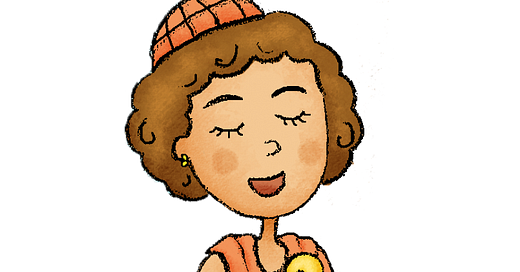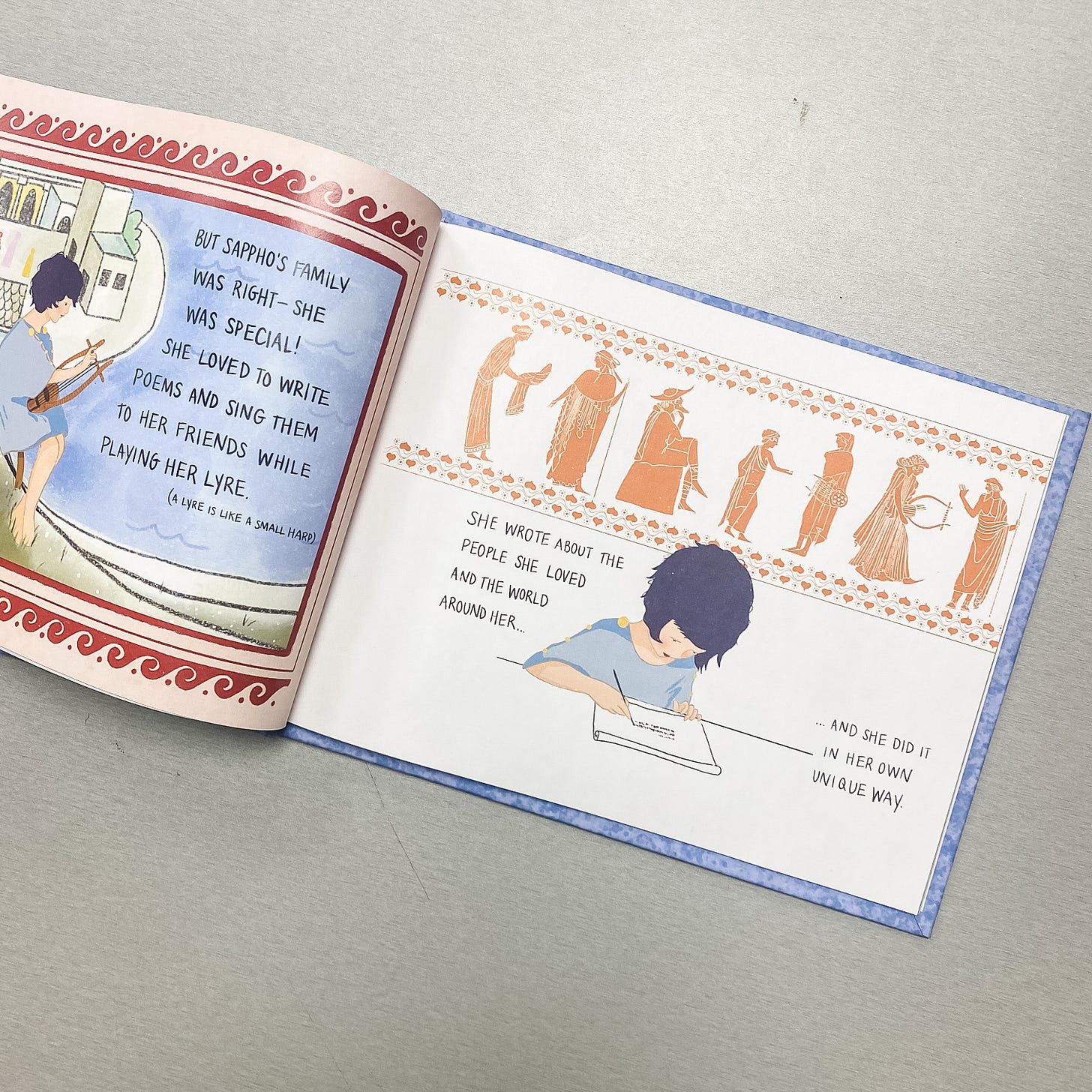Dear Classical KIDS,
We’ve spent the last couple of weeks discussing the great blind bard, Homer. He was considered the poet, so it only makes sense to follow up with the poetess.
Yes! It’s time to talk about the one and only: Sappho.
I should let you know that I have a great love for Sappho’s poetry and have been writing/telling anyone who will listen about her for years and years.
In fact, I wrote a whole children’s book about her called “Sappho: The Lost Poetess”, which you can find here:
Today’s issue comes from the final ‘factual’ page at the back of the book, so if you want to enjoy the beautifully illustrated hardback, I certainly advise you to get a copy. It also includes a lot of her original poetry and poetic devices - so it is a great way to teach not only ancient history, archeology but also poetry!
(Just as an aside, this is another great example of how studying the different components of the ancient world can’t be contained in neat silos... but how we can instead happily embrace the interdisciplinary nature of the classics!)
Onto Sappho, I hear you say! No problem and thanks for your patience :-)
Please enjoy learning a bit about Sappho, her style, her family and the super cool recent discovery of her poem, below.
All the best,
Anya Leonard
Founder and Director
Classical Wisdom and Classical Wisdom Kids
P.S. A special shout out to our members! Thank you SO much for supporting this project. It is born out of a labor of love to bring the classics not only to our own dear daughter, but also to little history, mythology, and philosophy lovers all around the world. Classical KIDS is currently read in 110 countries!
We are so honored that you are helping us in our mission of bringing ancient wisdom to future minds. THANK YOU!
If you aren’t a member yet, but would like to take part in our growing community committed to this important cause, subscribe today:
Sappho: The Poetess
Sappho was a Greek poetess from the island of Lesbos who lived with her parents and three brothers. She lived from 630 BC to 580 BC. Sappho wrote lyrical poetry and is most famous for her poems about love.
When a war broke out, her brothers, Charaxos and Larichos, had to fight. Sappho wrote a poem about them, hoping that Charaxos will return safely and that Larichos will grow into a fine man.
Sappho became a very famous poetess in her time and was renowned throughout the ancient world for her unique style and beautiful poems. For instance, she is famous for her special type of comparisons which use a kind of hyperbole, or exaggeration, like "more golden than gold". These are called "Sappho's Super Superlatives."
Her fans included Plato, the philosopher; Solon, one of the Seven Sages of Greece; and the ancient Egyptian scholars.
She was even compared to Homer, the most famous ancient poet of all time. He was called the Poet and she the Poetess.
However, over time fire, flood, neglect, and the disapproval of the men in power took a devastating toll on her work. She also wrote in a very rare dialect that most people did not know, so people did not copy her poems, because they did not understand them!
Sappho’s poems almost completely disappeared, with only fragments still surviving.
Then in 2014, a new poem was discovered. Ancient Egyptians used to pack their things with papyrus and one day a poem was found on the papyrus inside a vase. The ancient paper showed Sappho’s poem about her brothers Charaxos and Larichos. Now dubbed “The Brother’s Poem” it is one of the most exciting archaeological and literary discoveries of our age.
Let Little Readers Read!
Download the Printable PDF, along with the word bank here:
Keep reading with a 7-day free trial
Subscribe to Classical KIDS to keep reading this post and get 7 days of free access to the full post archives.






